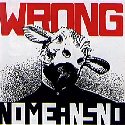|
Rodrigo Diaz posted:Your history is off, though I do somewhat agree with your prof's assessment. Alexander was not totalitarian. He did not have the means or the desire to be totalitarian. He was authoritarian, certainly. His destruction of Thebes is evidence enough of that, but totalitarianism requires a level of control that he would not have been able to exercise, and did not care to. He was certainly a jerk. With his desire to conquer people just because they were there, it's kinda hard not to be a jerk. That said, he still deserves his appellation because he did kick a lot of rear end and form a huge empire. Fair enough. I think I was mixing up my terms and some of my history (3 hours of sleep will do that to you). I guess I meant authoritarian when I said totalitarian. My professor basically said the same thing of Phillip, he was a barely tolerated semi-barbarian in Greek eyes that eventually came to dominate the region after coming to power through much scheming and application of military power. I guess if he hadn't been assassinated, we would be calling him Philip the Great and Alexander would be much more of a footnote, unless he struck out on his own after his father's eventual death. Then we would have maybe had a father-son pair of Macedonians with the epithet of "the Great".
|
|
|
|

|
| # ? Apr 27, 2024 22:09 |
|
billion dollar bitch posted:By the way, this is one of the best points in the thread so far. Thanks, dude. I promise he is nothing like Glen Beck.
|
|
|
|
GhostStalker posted:Fair enough. I think I was mixing up my terms and some of my history (3 hours of sleep will do that to you). I guess I meant authoritarian when I said totalitarian. My professor basically said the same thing of Phillip, he was a barely tolerated semi-barbarian in Greek eyes that eventually came to dominate the region after coming to power through much scheming and application of military power. I guess if he hadn't been assassinated, we would be calling him Philip the Great and Alexander would be much more of a footnote, unless he struck out on his own after his father's eventual death. Then we would have maybe had a father-son pair of Macedonians with the epithet of "the Great". The whole discussion is pretty weird, as dismissing people from military history because they weren't nice people would make for very thin history books. Sure, Alexander was a hedonistic dude who likely might have believed he were divine. But take a recent personality like Winston Churchill: also a drunk and often quite unfriendly person, responsible for some blatant blunders that led to the massacre of thousands of soldiers at Gallipoli. None the less he is regarded as an important driving force behind the stiff British resistance during WW2. Should we just vilify him for his bad sides, or do the intellectual stunt of being able to keep both his good and bad sides and accomplishes in our heads at once? Isn't that what what makes for the most interesting historical characters? Those people with both grandeur and faults? Complete goody-good shoes are usually very boring to read about, just like the white-washed school book versions of historical persons. Doesn't a person like Thomas Jefferson become more interesting when you know about his alleged slave children? Why is there a hundred time as many books written about Hitler as about Franklin D Roosevelt? Frankly, I can find few "the Greats" throughout history who haven't been assholes in one way or another.
|
|
|
|
Emmy the Great
|
|
|
|
lilljonas posted:Why is there a hundred time as many books written about Hitler as about Franklin D Roosevelt? Well, for many scholars, it's easier to write about a man with a relatively short life who instigated the most sprawling military conflict in world history as opposed to a man who impacted politics on a state, national, and international level for decades and who requires extensive research just to accurately portray his time as governor of New York, let alone his 12 years in the Oval Office.
|
|
|
|
TyChan posted:Well, for many scholars, it's easier to write about a man with a relatively short life who instigated the most sprawling military conflict in world history as opposed to a man who impacted politics on a state, national, and international level for decades and who requires extensive research just to accurately portray his time as governor of New York, let alone his 12 years in the Oval Office. To be honest, I think it has more to do with books about Hitler selling in the millions all over the world every year, not the amount of ground work required from the writer. But that's my thought on the issue. The number of people interested in reading about someone like Roosevelt are just dwarfed by the number of people interested in reading about someone like Hitler. My point is that I don't see the reason to whine about a prominent historical person being as prominent as they are just because they did bad things or had big personality flaws. On the contrary, it is usually those very things that makes us want to study them. lilljonas fucked around with this message at 17:32 on Jul 20, 2010 |
|
|
|
I think of the popularity of books about Hitler the same way I would think about popularity of books about cancer or something - probably overall a good thing, and not really a sign of Hitler-worship any more than it would be of cancer-worship.
|
|
|
|
how effective were tanks in WW1?
|
|
|
|
Kingsbury posted:how effective were tanks in WW1? As far as I know, not that much. Theoretically they were a great way to break a stalemate and take the enemy's trench, yet they suffered massively from reliability and maintenance issues. Basically the war ended before they could be optimised enough to be of real significance.
|
|
|
|
Perestroika posted:As far as I know, not that much. Theoretically they were a great way to break a stalemate and take the enemy's trench, yet they suffered massively from reliability and maintenance issues. They also scared the hell out of the soldiers who had never seen anything like them before. But yeah, overall they didn't do a whole lot.
|
|
|
|
Kingsbury posted:how effective were tanks in WW1? They would have been a lot better if they didn't end up being so poorly ventilated that it was impossible to breathe inside after a while. Also the non-British tanks had problems with tipping over. The Renault FT-17 was a pretty good model, but it came along very late in the war.
|
|
|
|
Yeah, the FT-17 was pretty much the first tank with the "standard configuration", with driver in the front, engine in the back, and the armament on top of the vehicle in a rotating turret. Just about every country with an armored force used them after the war, and they even saw some action in WW2, despite being badly outdated at that point.
Puukko naamassa fucked around with this message at 21:14 on Jul 20, 2010 |
|
|
|
Edit is not quote.
Puukko naamassa fucked around with this message at 21:12 on Jul 20, 2010 |
|
|
|
DarkCrawler posted:The English Channel [...] To my recollection only William the Conqueror [...] have been able to break them respectively and capitalize on them. You mean, apart from the Romans, the Saxons, the Angles and the Norse?
|
|
|
|
Alekanderu posted:You mean, apart from the Romans, the Saxons, the Angles and the Norse? Danes, not Norse. The Norse attempt to take the throne in 1066 failed.  Also the Saxons, Angles, and Jutes did not really conquer England, they settled there. It's possible many received their land for fighting as auxiliaries in Roman armies; the exact reason for settling in England isn't certain, but it was not a military conquest. More likely the Germans assumed roles of an elite over the native Celtic population, positions that had formally been filled by Romans. Later on, Swedes did something similar in Russia with the Slavs (Kievan Rus) and Bulgars did it amongst the Southern Slavs in Thrace; again, assimilating into an existing hierarchy in the absence of an elite rather than conquering. The Franks are possibly the most well-known group to do something like this, as they accepted Christianity before any other Germanic tribe and then settled into the existing Roman hierarchy in Gaul. HeroOfTheRevolution fucked around with this message at 23:17 on Jul 20, 2010 |
|
|
|
"Norse" is a blanket term for Scandinavian people at the time and doesn't just mean Norwegians. Vikings, if you will. The Danes were Norse, as were the Swedes, the Geats, the Norwegians etc.
|
|
|
|
I've heard that there were backdoor peace feelers sent to the Allies at various points during WW2, but I haven't found much information on any but the last-ditch "Maybe the Allies will magically forgive us and let us fight with them against the Bolsheviks and ignore the whole Holocaust" in April of '45. Can anyone tell me more about this? Also, can anyone comment on the book Red Army by Ralph Peters? It portrays a Soviet invasion of Western Europe during the 1980s, but his portrayal of NATO is often critiqued as either devastatingly accurate, or unduly pessimistic. It's about as far from the mind-numbing, Americans wave their magic wand and deliver a crippling blow against the enemy with their deux ex machina of Tom Clancy as you can get.
|
|
|
|
Crackpipe posted:Also, can anyone comment on the book Red Army by Ralph Peters? It portrays a Soviet invasion of Western Europe during the 1980s, but his portrayal of NATO is often critiqued as either devastatingly accurate, or unduly pessimistic. It's about as far from the mind-numbing, Americans wave their magic wand and deliver a crippling blow against the enemy with their deux ex machina of Tom Clancy as you can get. I don't see how any story about some hypothetical war between NATO and the Soviets could end in anything other than a nuclear holocaust.
|
|
|
|
HeroOfTheRevolution posted:Also the Saxons, Angles, and Jutes did not really conquer England, they settled there. It's possible many received their land for fighting as auxiliaries in Roman armies; the exact reason for settling in England isn't certain, but it was not a military conquest. More likely the Germans assumed roles of an elite over the native Celtic population, positions that had formally been filled by Romans. Later on, Swedes did something similar in Russia with the Slavs (Kievan Rus) and Bulgars did it amongst the Southern Slavs in Thrace; again, assimilating into an existing hierarchy in the absence of an elite rather than conquering. The Franks are possibly the most well-known group to do something like this, as they accepted Christianity before any other Germanic tribe and then settled into the existing Roman hierarchy in Gaul. This is only true for about 100 years, just like the Normans in France and subsequently in England. After two or three generations there is very little in Rus', Bulgaria, or England to distinguish the conquering peoples from the conquered, save the identity they assume. The Rus' identity, much more than the Bulgarian or Anglo-Saxon English for geographical reasons, was much more diverse but still had strong elements of uniformity. A druzhnik or smerd in Monomakh's Kiev was not too much different to one in Novgorod at that time. Of course, the non-Slavic spice in the ethnicity was different for the two locations, but there is little evidence they saw each other as much different.
|
|
|
|
Crackpipe posted:Also, can anyone comment on the book Red Army by Ralph Peters? It portrays a Soviet invasion of Western Europe during the 1980s, but his portrayal of NATO is often critiqued as either devastatingly accurate, or unduly pessimistic. It's about as far from the mind-numbing, Americans wave their magic wand and deliver a crippling blow against the enemy with their deux ex machina of Tom Clancy as you can get. I haven't read it, but given that it was apparently written in 1989, the author would have had less information about the actual capabilities of the Warzaw Pact forces than we have today. Because of the great secrecy surrounding the Soviet military-industrial complex there was a tendency in the West to exaggerate their capabilities (often for political reasons). For instance, the MiG-25 Foxbat was portrayed as some kind of super fighter, until a Soviet pilot defected with one and it turned out to be a "only" a really fast but otherwise pretty limited interceptor. In fact, if the scenario takes place in the mid- to late 80's, I'd say that NATO by then stood a much better chance of withstanding a Soviet invasion, compared to, say, the period right after the Vietnam war.
|
|
|
|
Kingsbury posted:how effective were tanks in WW1? On a strategic level, no single instrument was effective in WWI except artillery. But tanks were very good on a tactical level, especially when planned for (See: the battle of cambrai)
|
|
|
|
billion dollar bitch posted:On a strategic level, no single instrument was effective in WWI except artillery. Machine guns and barbed wire?
|
|
|
|
What do you guys think about the belief that Albert Speer did not have any direct knowledge of the Holocaust and thus was not punished as severely as other head Nazi figures? Seems like a load of bullshit to me, I just can't see how a person in his hugely important and influential position could not have possibly been aware of it, even if he wasn't directly involved with it himself.
|
|
|
|
Is there a cultural or political reason for why the Vietnamese were so tenacious when it came to resisting/fighting enemies during the modern era? Compared to many of the other Asian nations (or others anywhere), their ability to never capitulate seems to stand out. I am not too familiar with Vietnam, so I'm really curious.
|
|
|
|
Artillery killed two thirds of the dead of the first world war. Nothing else even remotely compares.
|
|
|
|
Kingsbury posted:I don't see how any story about some hypothetical war between NATO and the Soviets could end in anything other than a nuclear holocaust. Alekanderu posted:I haven't read it, but given that it was apparently written in 1989, the author would have had less information about the actual capabilities of the Warzaw Pact forces than we have today. Because of the great secrecy surrounding the Soviet military-industrial complex there was a tendency in the West to exaggerate their capabilities (often for political reasons). For instance, the MiG-25 Foxbat was portrayed as some kind of super fighter, until a Soviet pilot defected with one and it turned out to be a "only" a really fast but otherwise pretty limited interceptor. In the book, Warsaw Pact forces smash the NATO front lines on Day 1 and come within a few kilometers of the Rhine by Day 3, at which point NATO mounts an effective counterattack, and begins to drive them back along a few fronts, while Soviet follow-on forces rush in from Poland to repel them. However West Germany declares a unilateral cease-fire and fucks up NATO's day. Western troops are forced to withdraw west of the Rhine, and the war is effectively over.
|
|
|
|
old dog child posted:Is there a cultural or political reason for why the Vietnamese were so tenacious when it came to resisting/fighting enemies during the modern era? Compared to many of the other Asian nations (or others anywhere), their ability to never capitulate seems to stand out. I am not too familiar with Vietnam, so I'm really curious. The (communist)Vietnamese had the benefit of a few fairly charismatic leaders, and the communist party which gave the whole Viet Ming organization a unified purpose. The president of South Vietnam wasn't terribly worried about fighting the war - the Americans can deal with that, but he better not let any of his generals get too successful in the field. Other than that, it was mostly the matter of the North being secure behind their borders in the knowledge that the Americans will never dare cross it, or in the case of fighting the French, sanctuaries in China, and having an unlimited source of material support from the Soviet Union. The Soviet Union and the US have so far been incapable of defeating their respective Afghan insurgencies for largely the same reason - whatever they did in Afghanistan, the Taliban/Mujahadeen could always retread and regroup across the mountains into Pakistan, and had unlimited amounts of American and Chinese material support.
|
|
|
|
old dog child posted:Is there a cultural or political reason for why the Vietnamese were so tenacious when it came to resisting/fighting enemies during the modern era? Compared to many of the other Asian nations (or others anywhere), their ability to never capitulate seems to stand out. I am not too familiar with Vietnam, so I'm really curious. With whom are you comparing the Vietnamese?
|
|
|
|
Throatwarbler posted:The (communist)Vietnamese had the benefit of a few fairly charismatic leaders, and the communist party which gave the whole Viet Ming organization a unified purpose. The president of South Vietnam wasn't terribly worried about fighting the war - the Americans can deal with that, but he better not let any of his generals get too successful in the field. Surely the simplest answer is that America was fighting a war abroad that its army didn't want to fight? What care would the average American soldier have for that country? They were there against their will whilst the Vietcong were defending their homeland and their ideology against a country who were reluctant to be there in the first place. Isn't it the same in Afghanistan? The American's and British are now fighting a war they don't want any part of, whilst the Taliban are as fierce as ever, and seeing the reluctance on the part of the Allied forces only become more determined. It's fairly clear that the war in Afghanistan is being lost and the Allied forces only remain due to a sense of duty rather than desire - no army can win when they don't have the spirit for it.
|
|
|
|
Shimrra Jamaane posted:What do you guys think about the belief that Albert Speer did not have any direct knowledge of the Holocaust and thus was not punished as severely as other head Nazi figures? I'm very sure that was simply bullshit. He himself said that he was a very close friend to Hitler, if anyone could be. I don't think he could have been close to Hitler for so long without Adolf simply telling him about his plans. Also, and this is even more damning, as the head of the ministry for armament he often had to requisition forced laborers which would have come mainly out of the KZs. However I can't say why he got off relatively light in the Trials. Perhaps the judges wanted to show that they were "fair" and that not everyone who was a higher-up in the administration got an automatic death sentence?
|
|
|
|
Just how effective in war were men on horseback in plate armor, really? There's a huge amount of romance built up around the image of the mounted knight in full armor in western culture, and I want to know if they were worthy all the posthumous glory we're giving them.
|
|
|
|
Royality posted:Surely the simplest answer is that America was fighting a war abroad that its army didn't want to fight? What care would the average American soldier have for that country? They were there against their will whilst the Vietcong were defending their homeland and their ideology against a country who were reluctant to be there in the first place. Don't forget that the Vietnamese beat the French and the Chinese too. And the Cambodians.
|
|
|
|
And they beat the Chinese with their village defence forces/reserves, while their main army was still in Cambodia.
|
|
|
|
Torka posted:Just how effective in war were men on horseback in plate armor, really? Sufficiently so to be the dominant military force in Western Europe for several centuries. That's pretty good.
|
|
|
|
billion dollar bitch posted:Don't forget that the Vietnamese beat the French and the Chinese too. And the Cambodians. I don't actually know much about military history so it was more of a question than an explanation! Also thanks for correcting my poor grammar.
|
|
|
|
Torka posted:Just how effective in war were men on horseback in plate armor, really? Plate armor did not really come into vogue until the Late Middle Ages, but knights on horseback were the battle-winning element of European and Middle Eastern armies (the latter not always knights in the feudal sense, but still armored cavalry). Yes, they were worthy of the 'posthumous glory' we give them. In fact, armored cavalry was such a powerful force that even at the height of their power the Ottomans maintained a 3:1 ratio of cavalry to infantry in their armies because of how effective it had been in helping their rise; this was one of the reasons they failed to keep up with European powers, who began to use the more versatile and powerful infantry more and more. In a similar but contrary vein, video games like to give the Knights Templar some sort of elite status when in fact they lost just about every single pitched battle they were involved in, and many times the defeat could be directly attributed to the actions of the Templar. They were incredibly shrewd bankers and lenders and decent enough at defending the castles they were given, but were completely useless in the field. HeroOfTheRevolution fucked around with this message at 16:46 on Jul 21, 2010 |
|
|
|
Royality posted:Surely the simplest answer is that America was fighting a war abroad that its army didn't want to fight? What care would the average American soldier have for that country? They were there against their will whilst the Vietcong were defending their homeland and their ideology against a country who were reluctant to be there in the first place. Ideology isn't going to protect you from carpet bombing. The Viet Ming legitimately out-strategied and defeated the French in a conventional battle at Dien Bien Phu. They did it the same way Napoleon would have done it - concentrate superior force, take the high ground, and most importantly have 10x as much artillery as your enemy. Whether the Americans wanted to fight or not, they still beat the Vietnamese/Taliban in every engagement. They can never WIN, because they can never cross into North Vietnam or Pakistan to attack the enemy bases. The British tried for years to subdue Afghanistan and the North West Frontier, before realizing what the Romans realized about the Germans 1500 years ago, or what the Persians realized about the Greeks. The money you spend training and equipping regiments in Britain and then sending them around the world to be picked off by snipers in the Afghan hills is much more effectively spent simply buying off/arming the half of the Taliban/tribal leaders that hate you least, have "your" Afghans run the place, and then keeping them around as allies and vassal kings. It doesn't make for great victory parades, and it requires an amount of skill in subtle diplomacy, and a good amount of secret slush funds and shady weapons deals, but it's about the best anyone can do. Anything more is going to be a lot of blood and treasure for not very much gain. quote:And they beat the Chinese with their village defence forces/reserves, while their main army was still in Cambodia. "Beat the Chinese" is a bit much. The Chinese took all of their tactical objectives in 1973, the Vietnamese could do little to stop them. The Chinese lost far more men and material than they expected, of course, but this was due largely to Chinese incompetence and bad timing - China at the time was still in the throes of the Cultural Revolution which had thrown the entire country into chaos, and the force that invaded Vietnam was largely a second rate local defence force, as the bulk of the regular Chinese army was stationed on the Soviet border facing off the Russians.
|
|
|
|
Speaking of China, what happens if the Communists are defeated and the KMT takes over? It was interesting to read about the division in Communist philosophies and how that played a role during the Cold War. From a military sense, I'm sure Korea would have played out differently, possibly Vietnam as well?
|
|
|
|
Throatwarbler posted:Ideology isn't going to protect you from carpet bombing. The Viet Ming legitimately out-strategied and defeated the French in a conventional battle at Dien Bien Phu. They did it the same way Napoleon would have done it - concentrate superior force, take the high ground, and most importantly have 10x as much artillery as your enemy. Whether the Americans wanted to fight or not, they still beat the Vietnamese/Taliban in every engagement. They can never WIN, because they can never cross into North Vietnam or Pakistan to attack the enemy bases. Right, remember the number one key to a successful insurgency, according to successful insurgent TE Lawrence: a safe, unassailable base from where you can attack the enemy. For Lawrence it was Arabian desert, for Mao and the VC it was the population itself, and for the Taliban it is the border region with Pakistan. On the other hand, due to a variety of factors including lack of a geographical sanctuary, careful public relations campaigns included the co-opting of local rulers, and the insurgents' own alienation of the population, the Iraqi insurgency was essentially defeated, or at least pacified. Since you cannot attack the Taliban bases in Pakistan, they can operate with impunity from there and withdraw to safety.
|
|
|
|

|
| # ? Apr 27, 2024 22:09 |
|
Crackpipe posted:Also, can anyone comment on the book Red Army by Ralph Peters? It portrays a Soviet invasion of Western Europe during the 1980s, but his portrayal of NATO is often critiqued as either devastatingly accurate, or unduly pessimistic. It's about as far from the mind-numbing, Americans wave their magic wand and deliver a crippling blow against the enemy with their deux ex machina of Tom Clancy as you can get. I seem to recall that book comes with a foreword urging NATO countries to spend a lot more money on defence to prevent the scenario in his book from occurring, and the author was in the Army at the time. One suspects he had a vested interest in playing up the doom, much as the defence establishment of the time would publish books about the Soviet Union's new superweapons and/or incredibly huge hordes of tanks in order to get more funding. Still a good read, though.
|
|
|



























